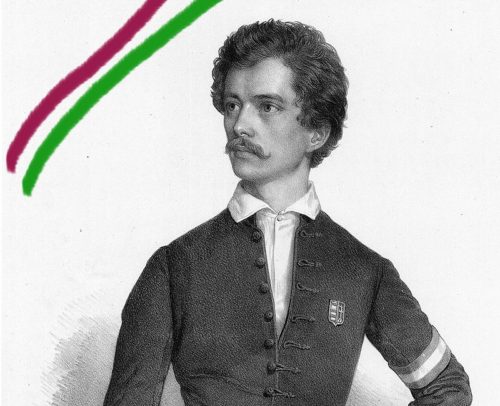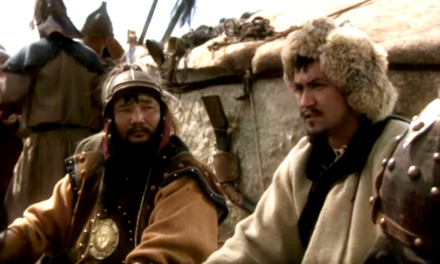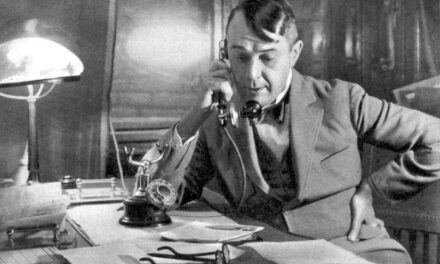Sándor Petőfi, one of the best-known figures of Hungarian poetry, was born on January 1, 1823.
"He is the Hungarian favorite of the gods. He received everything to become a great poet: talent, history, fate. He lived for twenty-six years, and left behind him a oeuvre of international literary stature and size, which marked a turning point in the literature of his nation," Béla G. Németh wrote about him.
His parents came from the Highlands, his father, István Petrovics, was a master butcher, and his mother, Mária Hrúz, was a laundress and servant. Although Petőfi was born in Kiskőrös (according to some sources on December 31, 1822), he lived in the scene of his childhood, Kiskunfélegyháza. He started his studies at the age of five, studied in a total of nine schools in several settlements with varying results, but excelled everywhere in calligraphy, Hungarian, Latin and German, and drawing.
As a teenager, he fell under the spell of the theater, until 1844 he was a traveling actor in Transdanubia, an extra in the Hungarian Theater in Pest, he performed in Kecskemét, Debrecen and Érmellék. In the meantime, he also served in the army in Sopron, Graz and Zagreb, but was demobilized due to his poor health.
In 1841-42, he studied at the papal college, where he became his lifelong friend Mór Jókai, from where he sent his first poems to József Bajza, the editor of the Athenaeum. In 1842, his poem A borózó was published in this journal, signed Sándor Petrovics, and it became Petőfi only a few months later, with his poem Hazámban.
Most of the time, he was rescued from poverty by friends and acquaintances, from living copies, French and English translations. In 1844, Vörösmarty supported the publication of his poems, and he also recommended them to Pesti Divatlap, of which Petőfi became assistant editor.
In 1844, the parody of the romantic heroic epic The Hammer of the Locality was published, in 1845 the poetic tale of the brave János, who created the new folk hero. In 1845-46, a short period of crisis occurred in his life: he was disappointed in love, attacked by conservative criticism, and had difficulties making a living. All this brought a gloom to his poetry, as indicated by his cycle of Clouds, his novel The Hangman's Rope, and his drama The Tiger and the Hyena.
In 1846, he met Júlia Szendrey, and although Júlia's father did not look favorably on his daughter's chosen one, the young people got married in September 1847.
This tumultuous, passionate love and happy marriage became the inspiration for his most beautiful love poetry, the most popular of which are his poems at the end of September, What do you call me?, Rezket a bokor because... Zoltán's son was born in December 1848 during the war of independence.
The year 1847 was the year of the close friendship with János Arany and the publication of his Complete Poems. The revolutionary wave that swept across Europe in 1848, which reached Pest and Buda in March, also captivated Petőfi, who professed the ideals of freedom, independence, democracy and equality, and the National Song was born, which was accepted as a program poem by both liberals and radicals.
However, Petőfi did not succeed as a politician, he became isolated due to his radicalism and also failed in the parliamentary election. His bitterness due to incomprehension and isolation appeared in his autobiographically inspired narrative poem The Apostle. He served in the army from October 1848 as a captain, and from May 1849 he was a major, but due to his stubbornness and stubbornness, he often differed with his superiors. From January 1849, he served in Bem's army as an assistant officer to the Polish general in Transylvania.
The loser of July 31 fell in the battle of Segesvár, the exact circumstances of his death are still unclear.
Petőfi brought the language of the people into Hungarian poetry, he spoke to everyone in a comprehensible and simple way, he considered the authentic formulation of his words and thoughts more important than formal perfection. Numerous adaptations of his works have been made, his life became the inspiration for films, novels, and plays, his memory and name are preserved by numerous public institutions, and his statue stands in several Hungarian cities, in Bratislava, Marosvásárhely, Ungvár, as well as in Beijing and Shanghai.
In 2021, on the occasion of the 200th anniversary of his birth, the Parliament declared the years 2022 and 2023 Petőfi commemorative years.
Source: hirado.hu
Image: Wikipedia












